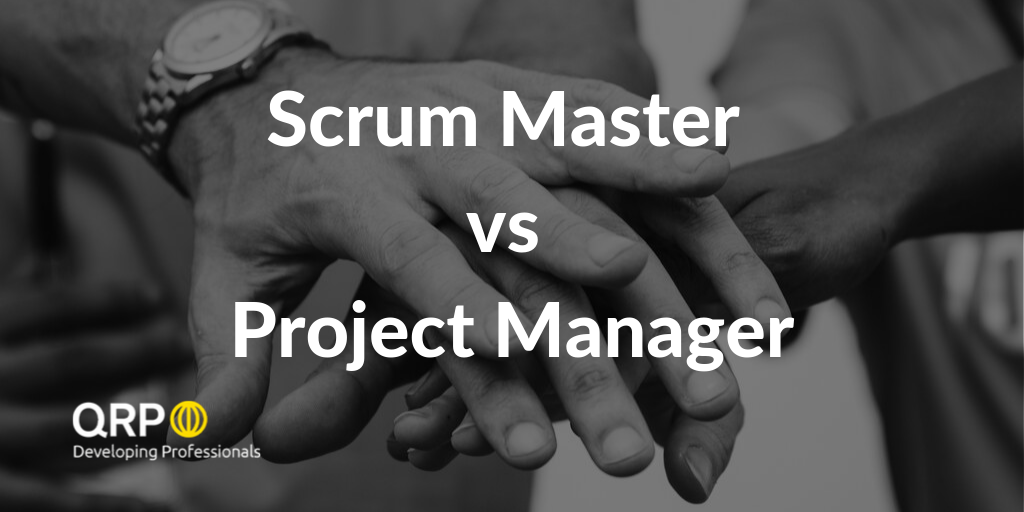Scrum Master vs Project Manager

For those who are approaching an Agile environment for the first time, the role of “Scrum Master” and the role of “Project Manager” could appear very similar. It’s not true. The Scrum Master and the Project Manager are two different professional figures, in this post, we will analyze both to catch all the peculiarities of these professionals.
The Project Manager is, first of all, a manager, this figure owns the responsibility of reaching all the project goals by coordinating business and technical delivery aspects of the projects throughout its duration and provides management direction and coordination.
The Scrum Master is a servant-leader for the Scrum Team. This Scrum professional helps everyone to understand Scrum theory, practices, rules, and values inside and outside the Scrum Team. A Scrum Master is more like a coach than a manager, in fact, any Scrum Master:
- doesn’t manage the team but is responsible for promoting and supporting Scrum and the Agile principles.
- supports the Product Owner
- is responsible for Scrum processes and their correct implementation with and within the Scrum Team. The Scrum Master is devoted to maximize the value created by the Scrum Team.
In few words, the Project Manager manages all the planning for the project execution whereas, the Scrum Master supports the Scrum Team by working side by side with its members and he/she verifies that the Agile principles are implemented correctly.
The Scrum Master, contrarily to the Project Manager, doesn’t assign tasks to the team members, he/ she is a process facilitator by leading the team to achieve an efficient self-management and self-organization. The self-organization is a core principle of the Scrum Team: the Scrum Team is not managed by a hierarchical structure but every member knows what to do and how to do it, no external direction is involved.
In an Agile project, the responsibilities that a Project Manager has in a traditional project, are shared among several figures:
- Product Owner
- Scrum Master
- Development Team
The activities of a Scrum Master change daily depending on the exigencies of the team: s/he has the responsibility of the correct functioning of the team by protecting it from external dangers. The Scrum Master is a fundamental role because he/she supports the team towards project success.
The main focus of a Project Manager is on the overall project meanwhile, the Scrum Master is focussed on the team and the team members. The Project Manager aim is to ensure the success of the project whereas, the scope of the Scrum Master is the success of the team.
The Project Manager in an Agile environment:
The PM and the Scrum Team
When an organization switches from traditional to Agile methods, the Project Manager might feel uncomfortable with the Agile processes and this is due to the differences in the functioning between an Agile self-organized and a traditional, external managed team.
In an Agile context, the Project Manager has to delegate the detailed planning to the scrum teams. The relationship between the Project Manager and the Development Team is more of an informal kind: the project manager won’t be focussed on having a regular check on what the team does, he will verify that the teams work in a right context instead. The Project Manager has to collaborate with the Development Teams helping them to handle problems and giving guidance. Anyway, the responsibility of a Project Manager is to ensure that the Development Team understands the objectives agreed at the beginning of any timebox and the importance of delivering on-time to reach them.
Finally, the Project Manager and the Scrum Master can coexist but they are two distinguished professionals. Thinking that the Project manager should become a Scrum Master is a mistake. Several Project Managers are unable to fit perfectly the Scrum Master role because they enact the “command and control” style inside the Scrum Team. The successful Scrum Master is a professional passionate for Agile who can share their knowledge through the servant leadership disregarding the technical or managerial background one could have.








